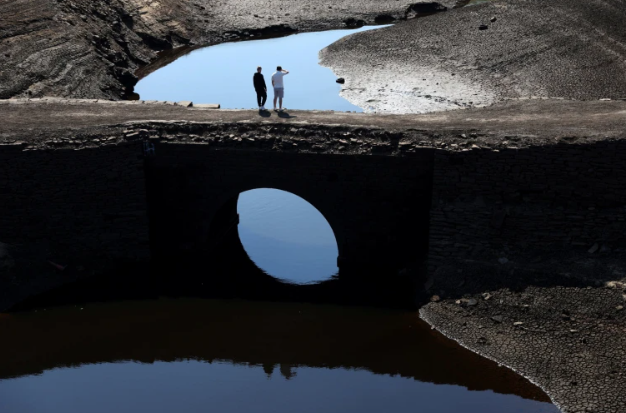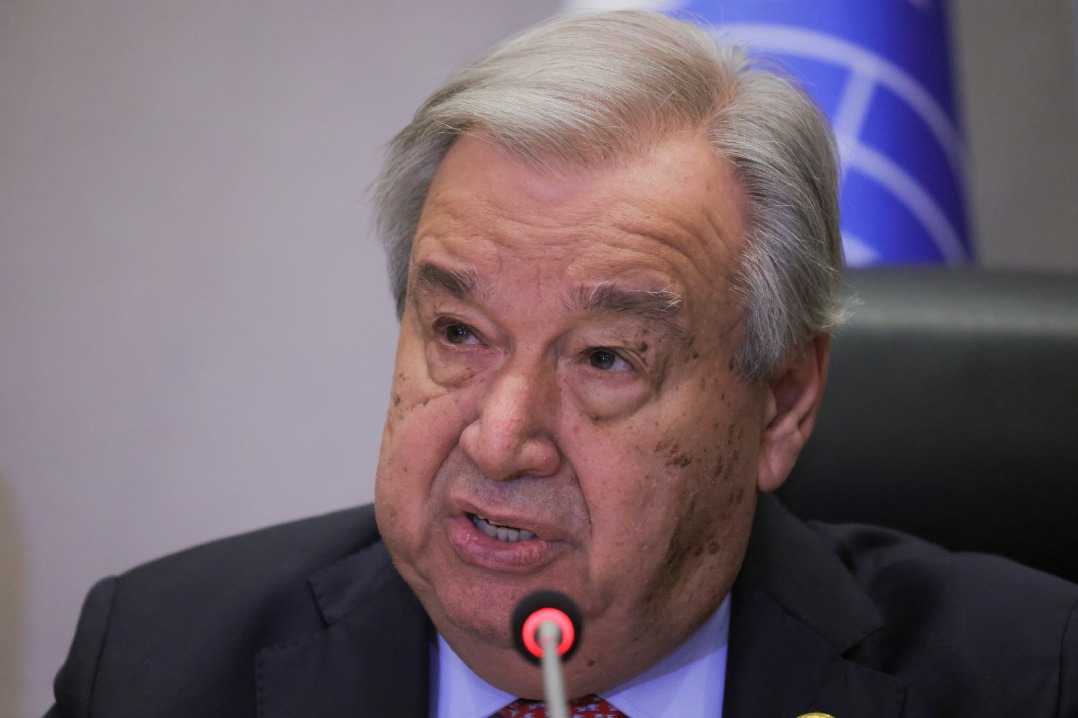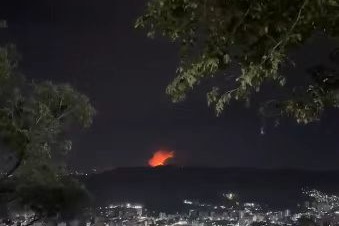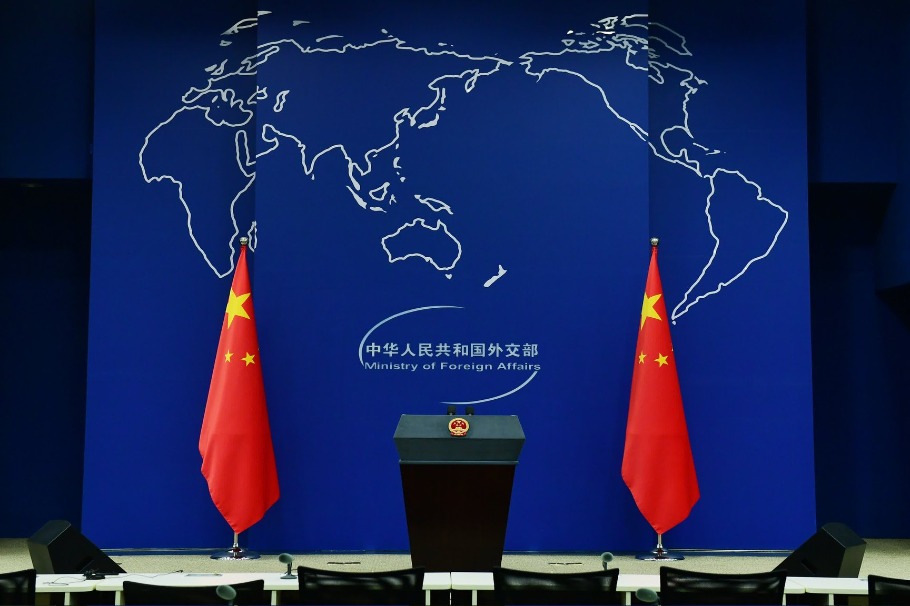The scorching summer heat that started sounding alarm bells all across Europe
By BO LEUNG in London | China Daily | Updated: 2022-12-20 09:05

The summer of 2022 in Europe was one of the hottest and driest, with record-breaking temperatures causing intense heat across the continent.
The extreme heat was felt across the United Kingdom as temperatures exceeded 40 C in July for the first time, in southwestern France, where 42 C was recorded, and in Seville and Cordoba in Spain, where record temperatures of 44 C were recorded.
The European Union's Copernicus Climate Change Service said the summer of 2022 was the hottest on record, and the United Nations' World Meteorological Organization, or WMO, said temperatures in Europe have increased more than twice the global average over the past 30 years, the highest of any continent.
Experts attribute this to human-driven climate change, and the extreme weather is also leading to wildfires, floods and more intense heat.
The WMO's State of the Climate in Europe report said temperatures over Europe rose significantly from 1991 to 2021, at an average of about 0.5 C each decade.
As a result, Alpine glaciers lost 30 meters in ice thickness from 1997 to 2021. In the summer of last year, Greenland experienced a melt event and the first-ever recorded rainfall at its highest point, Summit station.
Isabela del Alcazar Benjumea, global head of sustainability at IE University, Madrid, said: "We talk about limiting global warming to a maximum of 1.5 degrees, and this can only happen by reducing greenhouse gas emissions, as an increase in the atmospheric concentrations of these gases produces a change in Earth's energy balance, leading to a positive climate forcing. This translates into global warming and climate change that are the root of adverse meteorological phenomena that we live these days."
Stephen Cornelius, global deputy lead on climate and energy at conservation charity WWF, said: "The effects of this climate breakdown are already clear across the globe, with extreme events such as heat waves, drought and floods, made worse by climate change, devastating lives and livelihoods, and further accelerating biodiversity loss."
More intense
A report by the Met Office, the UK's national weather service, said this year's extreme heat in the country was far more intense and widespread than previous similar heat waves.
Stephen Belcher, Met Office chief scientist, said: "Under a very high emissions scenario we could see temperatures exceeding 40 degrees as frequently as every three years by the end of the century in the UK.Reducing carbon emissions will help to reduce the frequency, but we will still continue to see some occurrences of temperatures exceeding 40 degrees, and the UK will need to adapt to these extreme events."
Heat waves, particularly in western and southern Europe, are one of the deadliest extreme climate events in Europe, the WMO said.
The combination of climate change, urbanization and population aging in the region creates vulnerability to heat and will exacerbate it, it said.
Extreme heat this summer was responsible for more than 20,000 excess deaths in France, Germany, Spain and Britain, official figures suggest.
France reported 10,420 fatalities in total this summer, according to media reports. Britain's Office of National Statistics said there were 3,271 excess deaths in England and Wales between June 1 and Sept 7.Spain recorded 4,655 heat-attributable deaths between June and August, and the German health agency reported 4,500.
Scientists at the World Weather Attribution said temperatures of 40 C or above would have been "virtually impossible" without climate change.
Del Alcazar Benjumea said: "We started 2022 with a clear goal: Reducing methane emissions by 30 percent. This pledge had been signed by 119 countries during COP26 (in Scotland last year). But only 15 of them have come up with concrete plans to do so, according to a report by the World Resources Institute."
During COP26, 20 countries including the UK and the United States pledged to end public financing for fossil fuel projects by the end of this year, but this has not been fulfilled, she said.
Even worse, she said, the UK government has approved the country's first new coal mine in three decades.
Water and food crises
Jeremy Doyle, global technical adviser of climate adaptation and mitigation at SNV, a nonprofit organization, said society will have to adapt to increasing climate variability and change, with attention on the most vulnerable regions facing severe and continuing water and food crises.
"These regions have far fewer resources to deal with the harsh impacts of climate extremes. For example, the average annual maximum temperature in northern and southern Africa is likely to be close to 4 C above normal, according to UN regional projections. To tackle climate change we want to see more impact-driven finance. … Resources need to be focused on achieving climate outcomes."
This includes systems change, rather than isolated projects, which means a "fully supported systems change approach in transforming food, energy and water systems to meet global climate targets — creating a more resilient future for all".
Deeper partnerships are essential, and these would enable both efficiencies and greater impact, he said.
"We also need more local approaches that embed climate action from national to local levels, including supporting the local enabling environment, finance, and supporting local businesses and communities to engage in all activities."
























